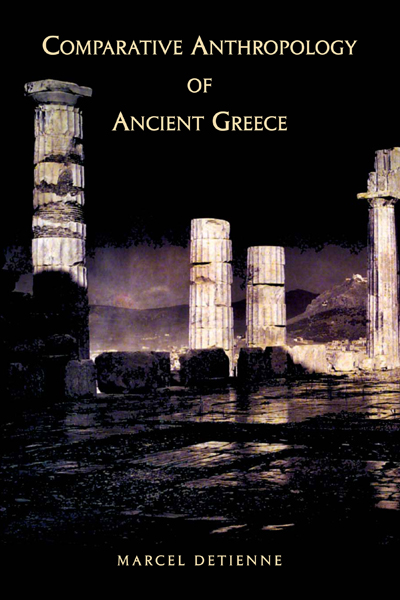Comparative Anthropology of Ancient Greece
Comparative Anthropology of Ancient Greece looks at the anthropology of the Greeks and other cultures across space and time, and in the process discovers aspects of the art of comparability. Historians and ethnologists can pool a wealth of knowledge about different cultures across space and time. Their joint task is to analyze human societies and to understand cultural products. Comparative analysis…
Comparative Anthropology of Ancient Greece looks at the anthropology of the Greeks and other cultures across space and time, and in the process discovers aspects of the art of comparability. Historians and ethnologists can pool a wealth of knowledge about different cultures across space and time. Their joint task is to analyze human societies and to understand cultural products. Comparative analysis involves working together in an experimental and constructive enterprise. Marcel Detienne, alerted by dissonances, tries to see how cultural systems react not just to a touchstone category, but also to the questions and concepts that arise from the reaction. What does it mean to found something, or rather to establish a territory, or to have or not have roots? What is a site or a place?
Available for purchase in print via Harvard University Press.
Detienne, Marcel. 2009. Comparative Anthropology of Ancient Greece. Hellenic Studies Series 17. Washington, DC: Center for Hellenic Studies. http://nrs.harvard.edu/urn-3:hul.ebook:CHS_Detienne.Comparative_Anthropology_of_Ancient_Greece.2009.
This work is licensed under a Creative Commons 3.0 License.

